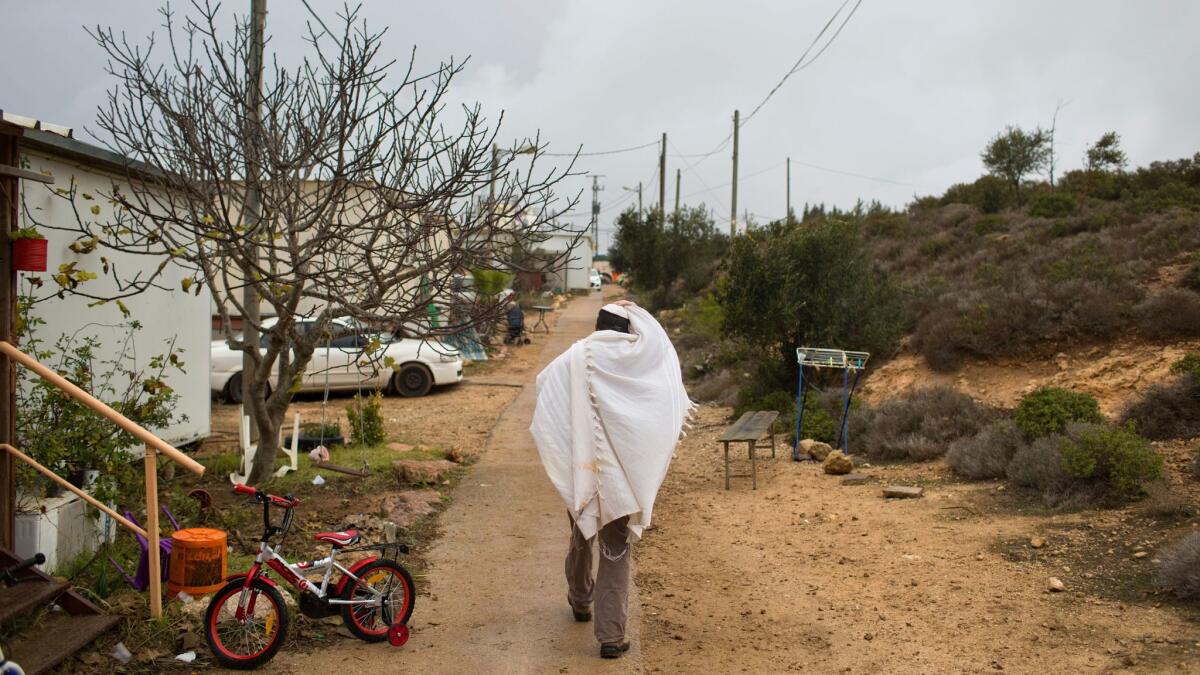Israel’s high court delays demolition of West Bank outpost

Reporting from Tel Aviv — Israel’s high court gave the government a 45-day extension Thursday to evacuate a Jewish outpost in the West Bank after settlers there pledged to leave peacefully.
The decision came days before a Dec. 25 deadline to demolish Amona, which the court ruled two years ago was built illegally on privately owned Palestinian land.
Prime Minister Benjamin Netanyahu asked for the extension after reaching a controversial deal with Amona residents that he hopes will avoid clashes with the Israeli police — and a crisis with pro-settler partners in his governing coalition. The outpost was the site of a violent confrontation 10 years ago when the government sent bulldozers to demolish several homes.
Hundreds of youths had gathered on the hilltop to prevent any further destruction of the settlement. They were sent home this week after the government agreed to relocate some residents to adjacent land. But that might not be possible: Yesh Din, a human rights group that represents Palestinian landowners, says that plot is privately owned as well.
“The responsibility is now entirely on the state and Prime Minister Netanyahu who promised to establish homes for Amona residents on the mountain in 45 days,” the Amona leadership wrote on its Facebook page. “The ball is in their hands.’’
The outpost, where 40 families reside, has become a symbol of the right-wing government’s efforts to legalize dozens of tiny unauthorized settlements, despite court challenges from human rights groups and Palestinian landowners. Critics of the effort say it will make it impossible to establish a continuous Palestinian state in the West Bank.
The Israeli court’s decision came as Egypt indefinitely postponed a vote at the United Nations on a proposed Security Council resolution calling on Israel to halt settlement activity in the West Bank and east Jerusalem.
Netanyahu and President-elect Donald Trump had both urged the Obama administration to use its veto power to block the resolution, which had been scheduled to come up for a vote Thursday.
The U.S. has traditionally vetoed resolutions condemning Israeli settlements, even though it sees them as an obstacle to peace. But after years of failed negotiations, the Israeli government had been worried that the outgoing administration might abstain and allow Egypt’s resolution to pass.
“Peace will come not through U.N. resolutions, but only through direct negotiations between the parties,” Netanyahu said.
Mitnick is a special correspondent.
More to Read
Sign up for Essential California
The most important California stories and recommendations in your inbox every morning.
You may occasionally receive promotional content from the Los Angeles Times.










